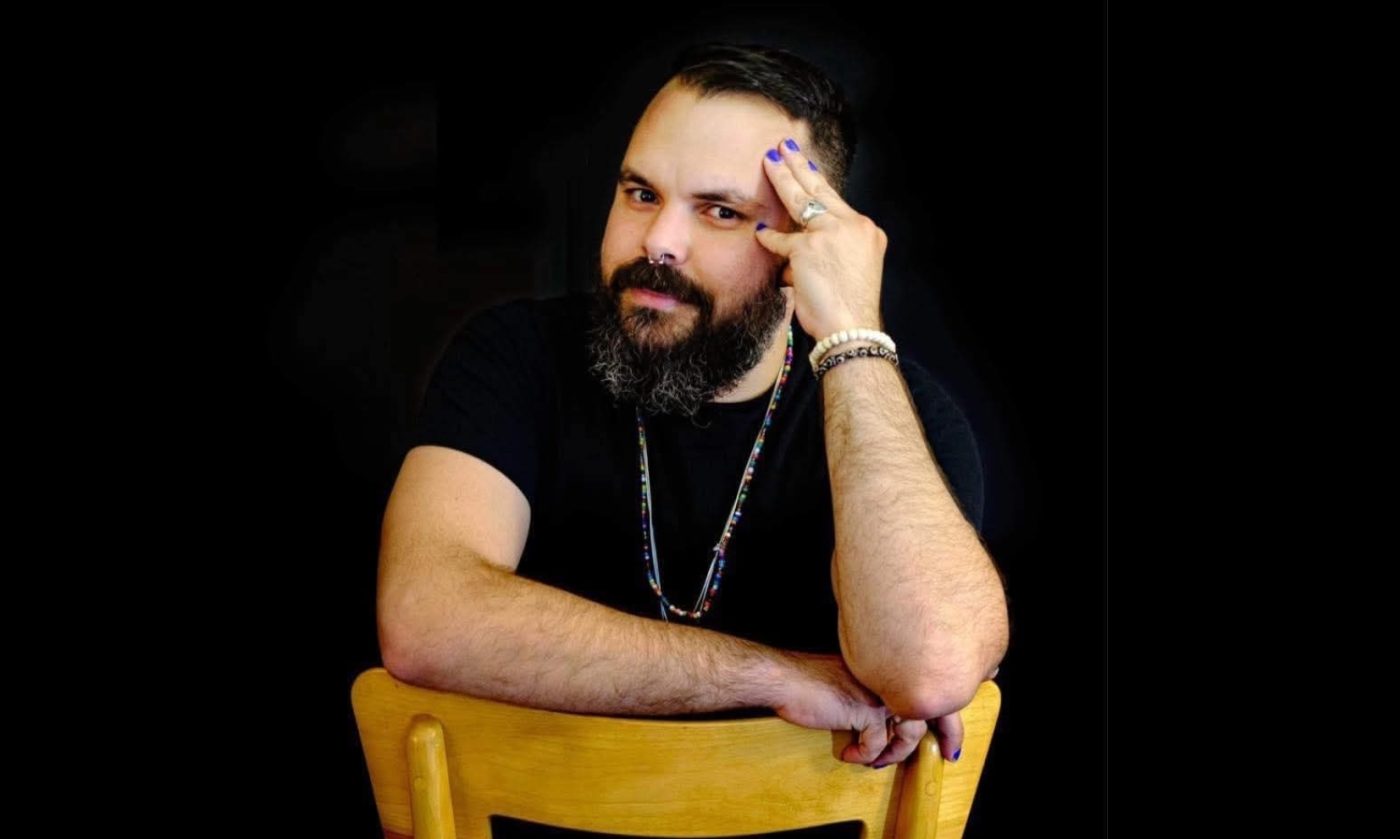When my father died, I didn’t know how to feel.
We weren’t close. We hadn’t spoken in years. There was no big dramatic fallout just a slow, quiet fade. Phone calls that stopped coming. Texts were never answered. Time stretched the distance wider until we were strangers who shared a last name.
Then came the call. He was gone. At first, I thought it was just a joke—something that was supposed to rattle my cage. But nope. My father had truly departed.
At first, I didn’t cry. I didn’t collapse in grief the way movies or religion tell you you’re supposed to. I just sat with it. Numb. Not because I didn’t care, but because I didn’t know how to grieve someone who’d already been gone in so many ways.

Courtesy of Eron Mazza
But grief still came. Messy, sideways, and out of nowhere. It hit me in the car. In the shower. In a grocery store aisle, I was looking at something I hadn’t thought about in years. And it wasn’t just grief for him. It was grief for what we never got to be.
I’m queer. I’m a witch. I’m intense, emotional, stubborn, and spiritual in ways he never understood. Maybe he didn’t try to. Maybe I didn’t give him a chance. Our communication broke down long ago, and the silence between us became its kind of wound.
But here’s the truth: my dad struggled. In his later years, he was battling severe mental health issues, something I didn’t fully understand until much later. He was dealing with demons I couldn’t see from a distance. And like so many men of his generation, he didn’t talk about it. He didn’t ask for help. He isolated himself, and eventually, that isolation swallowed our connection too.
I’ve made peace with the fact that I’ll never know the full story. I’ll never get the apology I hoped for, or the conversation that might’ve healed the hurt. That’s just real life. That’s a loss.
But I’ve also made a choice. I’ve chosen to remember him as he was in my younger years.
The man who taught me to make coffee. Who let me stay up late to watch sci-fi movies. Who gave me my love of stories, music, and curiosity. The dad who sat on the floor with me while I played with toys, who laughed easily, who tried at least for a little while.
That version of him is the one I hold onto.
After he died, I started talking to him. Not in some grand ritual (though I’ve done those too), but quietly. On walks. While cleaning. Sitting with a candle. I’d tell him what hurt. What I wish he’d said. What I wish I had. And little by little, something in me softened.
As someone who works with death in my spiritual practice, I know this much: relationships don’t end with death. They just change form. They move into memory, into shadow, into mystery. And in that liminal space, healing can happen.
I made a small altar for him. A photo. A flame. A few objects from my childhood. Nothing elaborate just enough to say, you mattered, even if it was complicated.
I’ve let myself grieve him, not as the man he became in his hardest years, but as the man I once loved deeply—the one I still love, in that complicated, haunted, deeply human way.
Grief like this doesn’t come with a script. When someone dies who you were estranged from or who struggled with their pain it can leave you spinning. You question everything. Were you fair? Were you selfish? Should you have tried harder? Should they?
But that spiral doesn’t help. What helps is letting the truth be what it is: complex. Unfinished. Messy. And still, somehow, meaningful.
If you’ve lost someone like that someone who was once close but later became distant, whether by illness, conflict, or circumstance I want you to know: your grief is real. Even if it doesn’t look like anyone else’s. Even if it’s a mix of sorrow, relief, guilt, and longing.
You can still honor what was. You can still choose what to remember. You can grieve with boundaries and love with distance. That’s not failure. That’s growth.
Since his passing, I’ve learned to carry him differently. I don’t sugarcoat our story. But I don’t let it rot in bitterness either. I remember the good. I acknowledge the harm. I hold space for the version of him who tried and I release the rest into whatever comes after.
If I could say one thing to him now, it would be this: “I see now that you were hurting more than I knew. I wish you’d let me in. But I still carry the pieces of you that made me who I am and I choose to carry them with care.”
Grief, for me, is a ritual of remembrance. A reclaiming of the parts worth keeping. A soft prayer for peace on both sides of the veil.
And in that space, I’ve found my kind of healing.
Eron Vito Mazza is the author of The Living Lenormand, and is the host of the podcast The Witching Hour with Eron Mazza.
